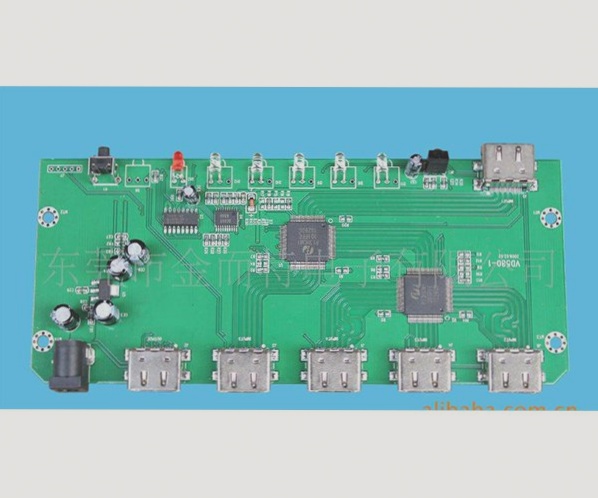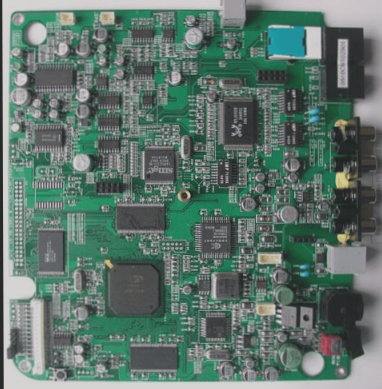1. All materials have a shelf life, but some last longer than others.
2. What issues arise from using expired materials? Consider the consequences of consuming expired food.
3. Similarly, what problems occur with an expired PCB (Printed Circuit Board)?
4. Before addressing “Expired PCB Use,” we must first understand the role of the PCB.
5. What processing does it undergo in the PCBA factory?
6. The primary function of the PCB is to transmit electronic signals as a carrier for electronic components.
7. If components can’t be soldered to the PCB or if contact points fail to effectively transmit signals, it may compromise the performance of electronic products or lead to intermittent issues.
8. How are electronic components soldered onto the PCB?
9. The current PCB soldering process typically involves high temperatures of around 240-250 degrees Celsius to melt the solder (solder paste or wire) and connect the component leads to the PCB.
10. This raises a question: can an expired PCB endure two cycles of high temperatures above 250 degrees Celsius without issues?
11. The mention of two high-temperature cycles is pertinent because most PCBA processes involve double-sided soldering.

Based on the above understanding, we can now examine “What might happen with the use of expired PCBs?” The following issues may not necessarily occur, but they all carry inherent risks. Therefore, if you choose to use expired PCBs, it is essential to ensure that the following problems do not arise:
1. Expired PCBs may cause oxidation of the solder pads on the surface.
Oxidation of solder pads can lead to poor soldering, which may ultimately result in functional failure or dropout risks. Different surface treatments of circuit boards exhibit varying levels of oxidation resistance. In principle, ENIG (Electroless Nickel Immersion Gold) should be used within 12 months, while OSP (Organic Solderability Preservative) should be used within six months. It is advisable to adhere to the shelf life guidelines provided by the PCB manufacturer to ensure quality.
OSP boards can typically be returned to the manufacturer to remove the OSP film and apply a new layer. However, the pickling process used to remove the OSP may risk damaging the copper foil circuit, so it’s best to consult the manufacturer to confirm whether reprocessing the OSP film is feasible.
ENIG boards, on the other hand, cannot be reprocessed. It is generally recommended to perform “press-baking” and subsequently test for any solderability issues.
2. Expired PCBs may absorb moisture, leading to board failure.
If a circuit board absorbs moisture and then undergoes reflow, it may experience popcorn effects, explosions, or delamination. Although baking can address this issue, not all boards are suitable for baking, and this process may introduce other quality problems.
Typically, OSP boards should not be baked, as high temperatures can damage the OSP film. Nonetheless, some users have successfully baked OSP boards, provided the baking time is kept short and the temperature is not excessively high. Completing the reflow process as quickly as possible presents significant challenges; otherwise, the solder pads may oxidize, negatively impacting soldering quality.
3. The bonding ability of expired PCBs may degrade over time.
As time passes, the bonding strength between layers of a circuit board can gradually diminish or even deteriorate. This means that the adhesive force holding the layers together decreases over time.
When such a circuit board undergoes the high temperatures of the reflow oven, the different thermal expansion coefficients of the materials may lead to delamination and surface bubbles due to thermal expansion and contraction. This can seriously compromise the reliability and long-term performance of the circuit board, as delamination can break the vias connecting the layers, resulting in poor electrical characteristics. The most concerning issue is the potential for intermittent failures, which may lead to CAF (conductive anodic filament) issues without clear indication.
The above outlines the risks associated with using expired PCBs.
2. What issues arise from using expired materials? Consider the consequences of consuming expired food.
3. Similarly, what problems occur with an expired PCB (Printed Circuit Board)?
4. Before addressing “Expired PCB Use,” we must first understand the role of the PCB.
5. What processing does it undergo in the PCBA factory?
6. The primary function of the PCB is to transmit electronic signals as a carrier for electronic components.
7. If components can’t be soldered to the PCB or if contact points fail to effectively transmit signals, it may compromise the performance of electronic products or lead to intermittent issues.
8. How are electronic components soldered onto the PCB?
9. The current PCB soldering process typically involves high temperatures of around 240-250 degrees Celsius to melt the solder (solder paste or wire) and connect the component leads to the PCB.
10. This raises a question: can an expired PCB endure two cycles of high temperatures above 250 degrees Celsius without issues?
11. The mention of two high-temperature cycles is pertinent because most PCBA processes involve double-sided soldering.

Based on the above understanding, we can now examine “What might happen with the use of expired PCBs?” The following issues may not necessarily occur, but they all carry inherent risks. Therefore, if you choose to use expired PCBs, it is essential to ensure that the following problems do not arise:
1. Expired PCBs may cause oxidation of the solder pads on the surface.
Oxidation of solder pads can lead to poor soldering, which may ultimately result in functional failure or dropout risks. Different surface treatments of circuit boards exhibit varying levels of oxidation resistance. In principle, ENIG (Electroless Nickel Immersion Gold) should be used within 12 months, while OSP (Organic Solderability Preservative) should be used within six months. It is advisable to adhere to the shelf life guidelines provided by the PCB manufacturer to ensure quality.
OSP boards can typically be returned to the manufacturer to remove the OSP film and apply a new layer. However, the pickling process used to remove the OSP may risk damaging the copper foil circuit, so it’s best to consult the manufacturer to confirm whether reprocessing the OSP film is feasible.
ENIG boards, on the other hand, cannot be reprocessed. It is generally recommended to perform “press-baking” and subsequently test for any solderability issues.
2. Expired PCBs may absorb moisture, leading to board failure.
If a circuit board absorbs moisture and then undergoes reflow, it may experience popcorn effects, explosions, or delamination. Although baking can address this issue, not all boards are suitable for baking, and this process may introduce other quality problems.
Typically, OSP boards should not be baked, as high temperatures can damage the OSP film. Nonetheless, some users have successfully baked OSP boards, provided the baking time is kept short and the temperature is not excessively high. Completing the reflow process as quickly as possible presents significant challenges; otherwise, the solder pads may oxidize, negatively impacting soldering quality.
3. The bonding ability of expired PCBs may degrade over time.
As time passes, the bonding strength between layers of a circuit board can gradually diminish or even deteriorate. This means that the adhesive force holding the layers together decreases over time.
When such a circuit board undergoes the high temperatures of the reflow oven, the different thermal expansion coefficients of the materials may lead to delamination and surface bubbles due to thermal expansion and contraction. This can seriously compromise the reliability and long-term performance of the circuit board, as delamination can break the vias connecting the layers, resulting in poor electrical characteristics. The most concerning issue is the potential for intermittent failures, which may lead to CAF (conductive anodic filament) issues without clear indication.
The above outlines the risks associated with using expired PCBs.




